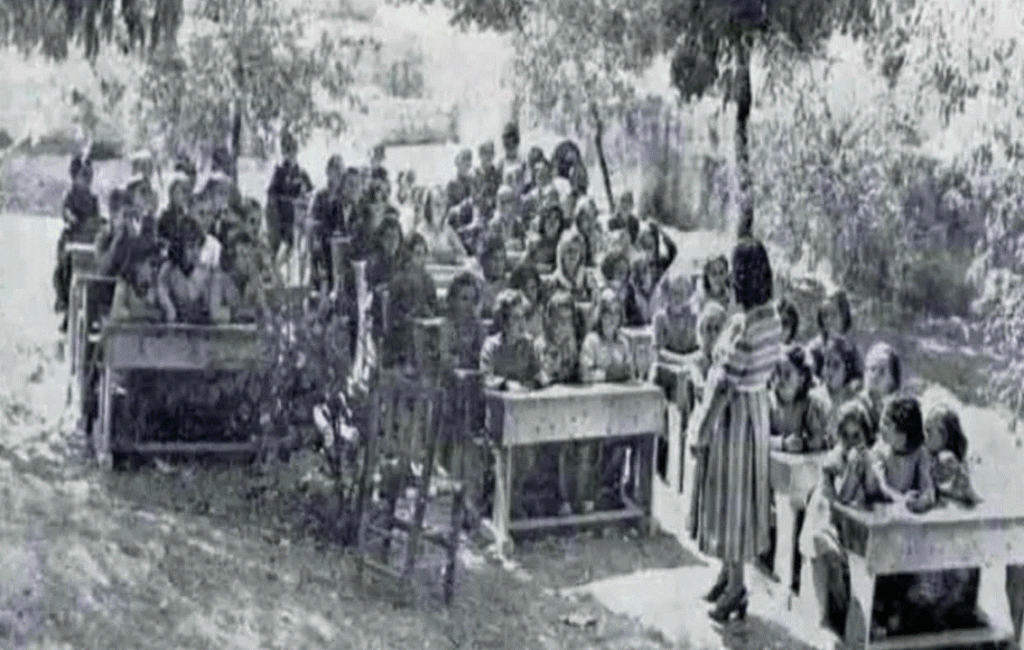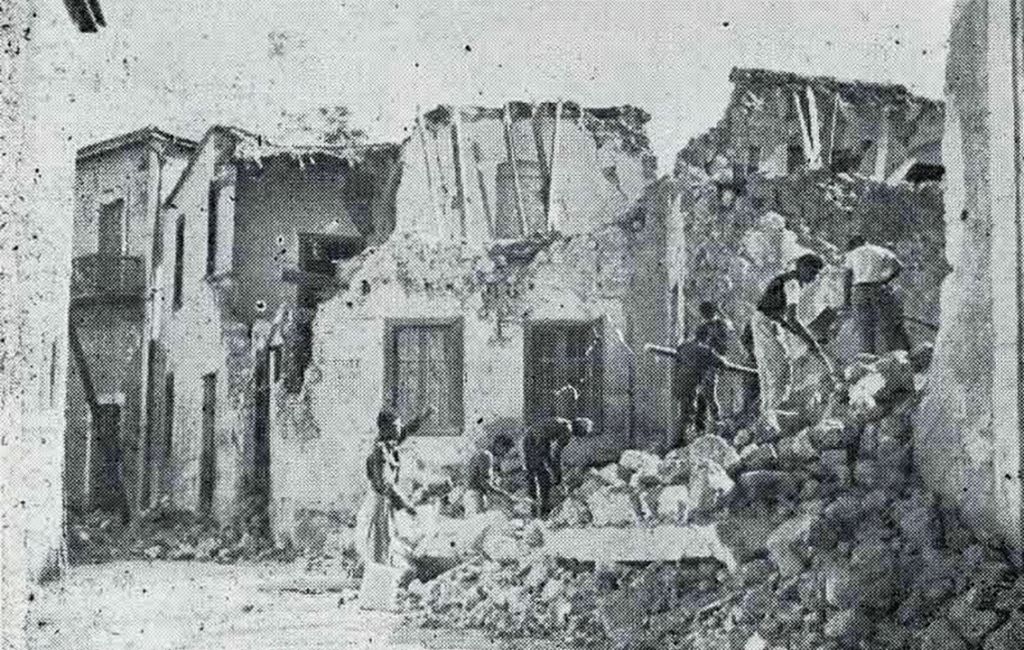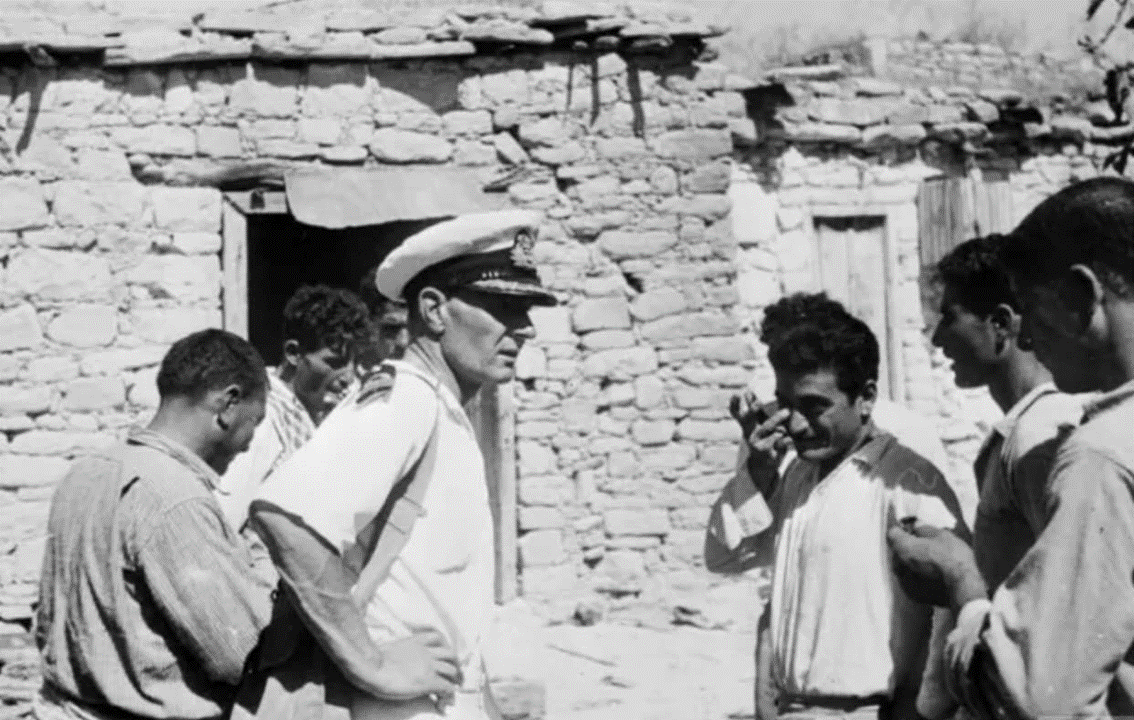DEVASTATION IN THE WEST OF CYPRUS
A SEISMIC REGION!
The eastern Mediterranean region has produced several significant earthquakes historically. These include events in the whole Aegean region, which lies in a seismically active area where the African, Arabian, and Eurasian plates interact. As a result, earthquakes in this zone can be moderate to strong and are often felt across the eastern Mediterranean. This leads to regular seismic activity in the broader Eastern Mediterranean region, which constantly affects Cyprus. As a result, the island often suffers aftershocks from larger regional earthquakes. The earthquake that occurred in September 1953 is notable because it caused severe structural damage. This occurred particularly in the greater Paphos region, affecting several towns and villages.
ONE OF THE STRONGEST EARTHQUAKES EVER KNOWN IN CYPRUS
On the morning of September 10th, 1953, at around 6.00 am, the district of Paphos suffered one of the strongest earthquakes ever known in Cyprus. Within a short time, people across the west of Cyprus were found rushing into the streets as buildings began to collapse around them like playing cards.
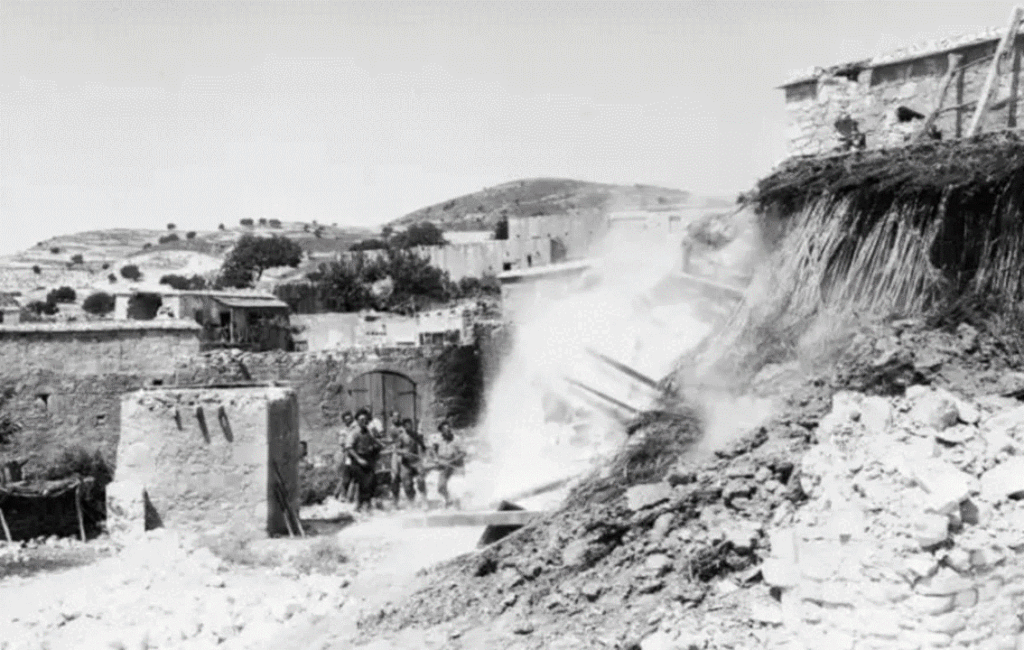
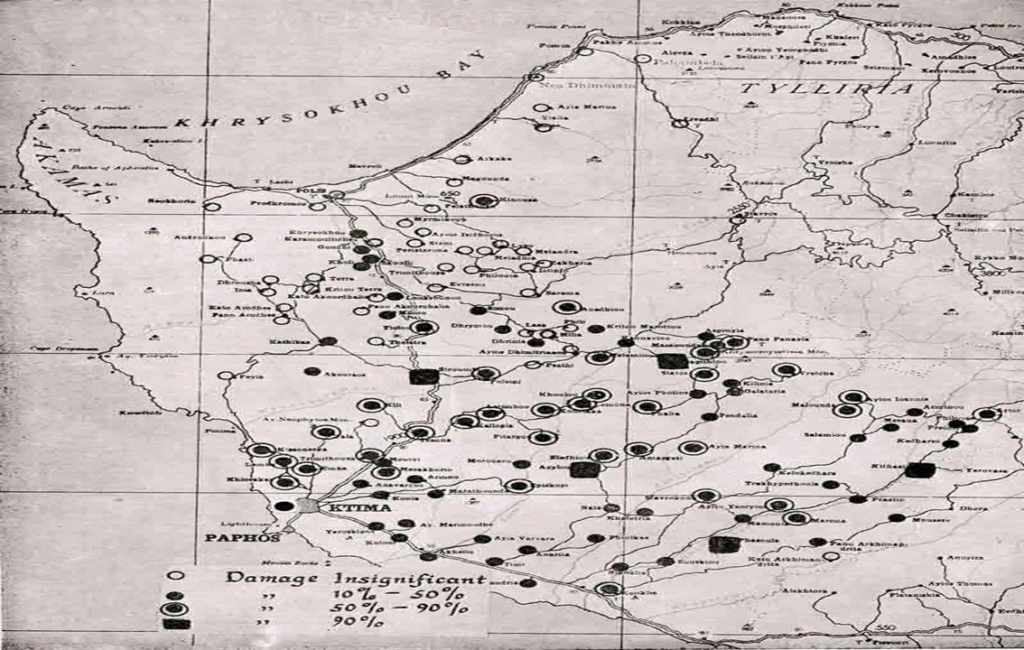
THOUSANDS LEFT HOMELESS
The aftermath of this catastrophic event saw debris lying everywhere. This left British officials describing the event as a disaster of biblical proportions. They, along with several survivors, were left clamouring in vain, agonisingly searching through the ruins for people who were missing. Their final report concluded that up to 4000 people had become homeless on that fateful day in Cyprus. The report also concluded that over 100 people were injured and 40 souls were lost. The callous picture of destruction became etched in the minds of the Cypriot people forever thereafter.
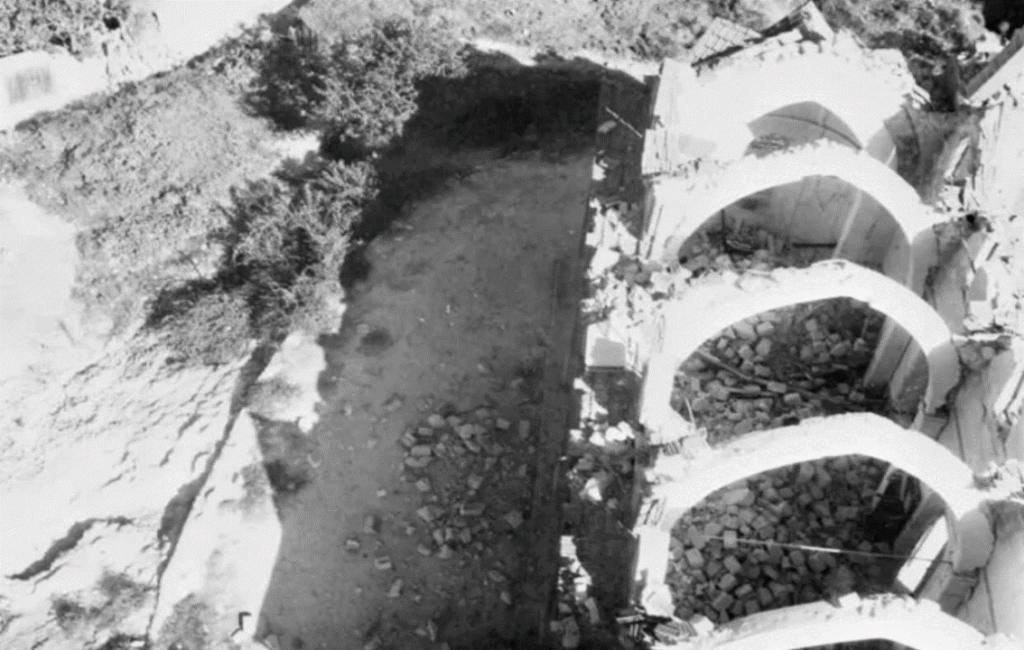
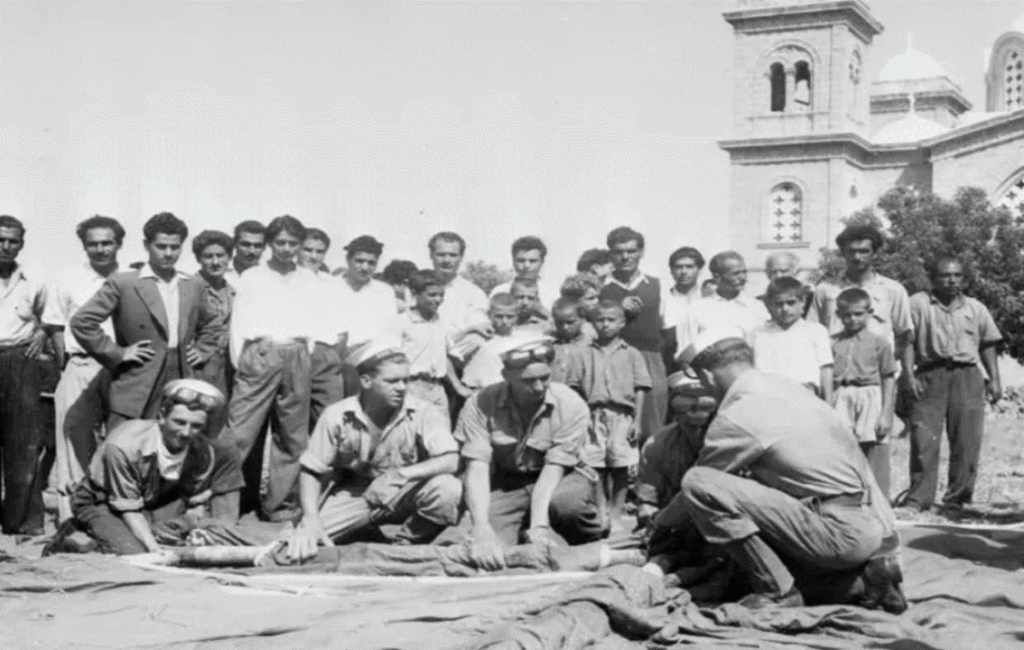
5 VILLAGES LAY IN RUINS
Although the earthquake affected the entire island of Cyprus, it was the west that bore the brunt of the natural disaster. The earthquake was so intense that it was also felt in the whole eastern Mediterranean region. The shockwaves had caused extensive damage in a total of 158 villages and towns. The villages of Stroumbi, Kidasi, Lapithi, Axylou, and Fasoula lay in ruins in the aftermath. Landslides and superficial cracks were then made worse by several subsequent aftershocks, causing further insecurity and panic thereafter.
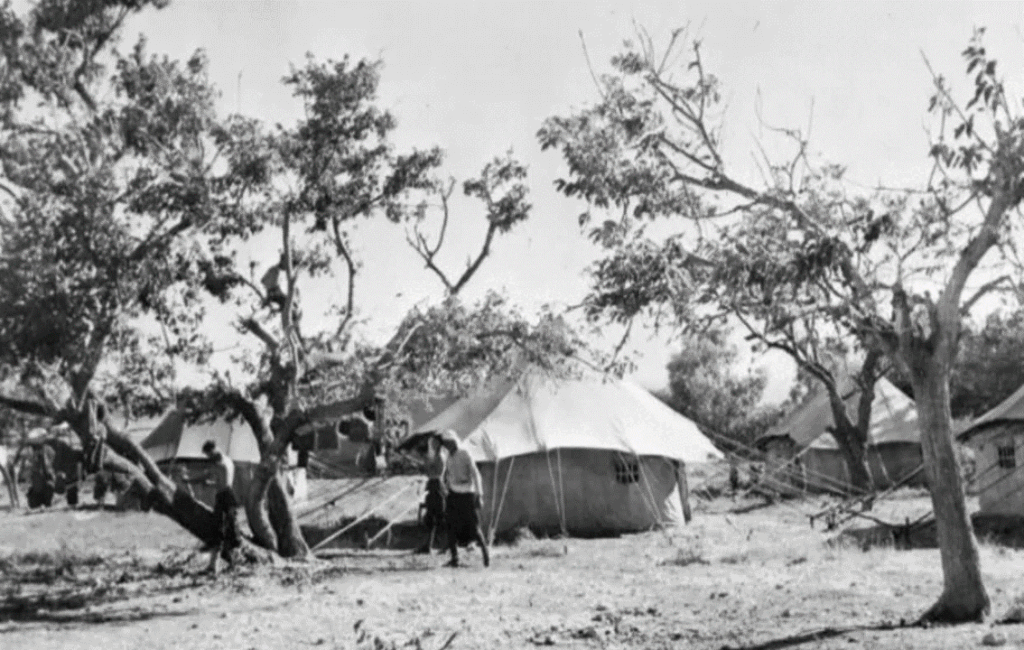
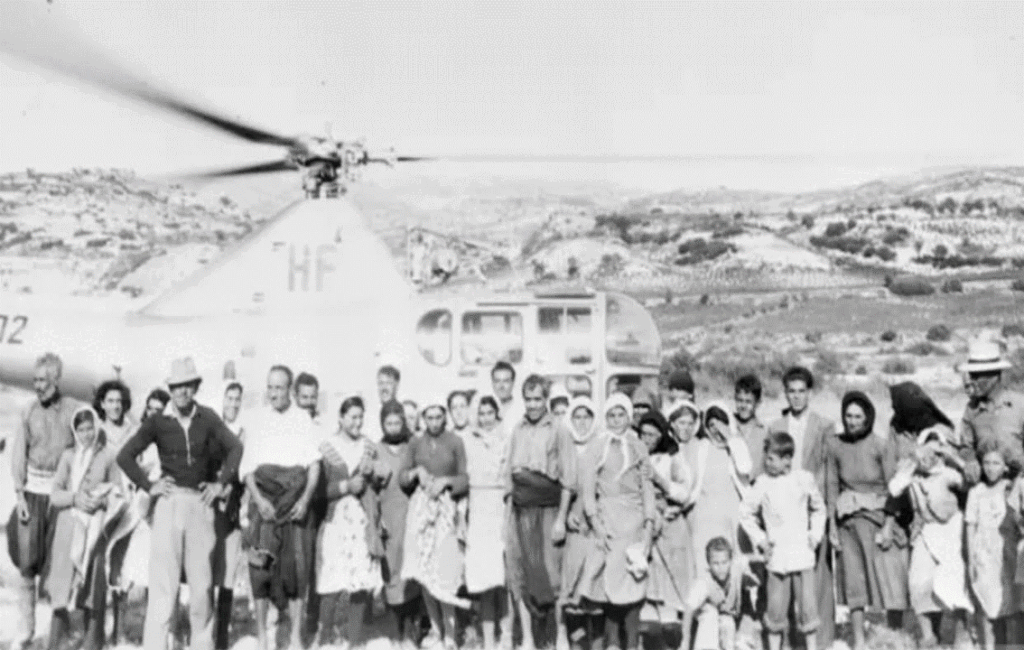
HUMANITARIAN AID
The earthquake survivors went on to form their own earthquake committees, and they, along with British authorities, supplied all of the necessary tools for local volunteers to start an immediate clear-up mission. British authorities also soon set up a series of facilities offering humanitarian aid. These included temporary camps, medical centres, and schools for all displaced people.
